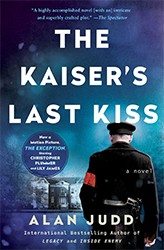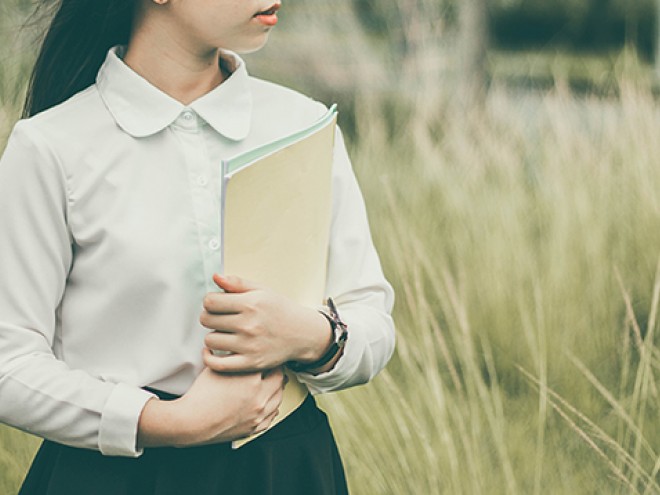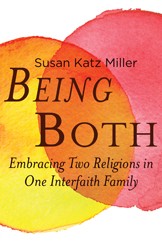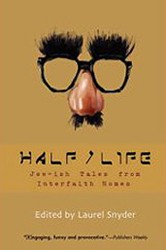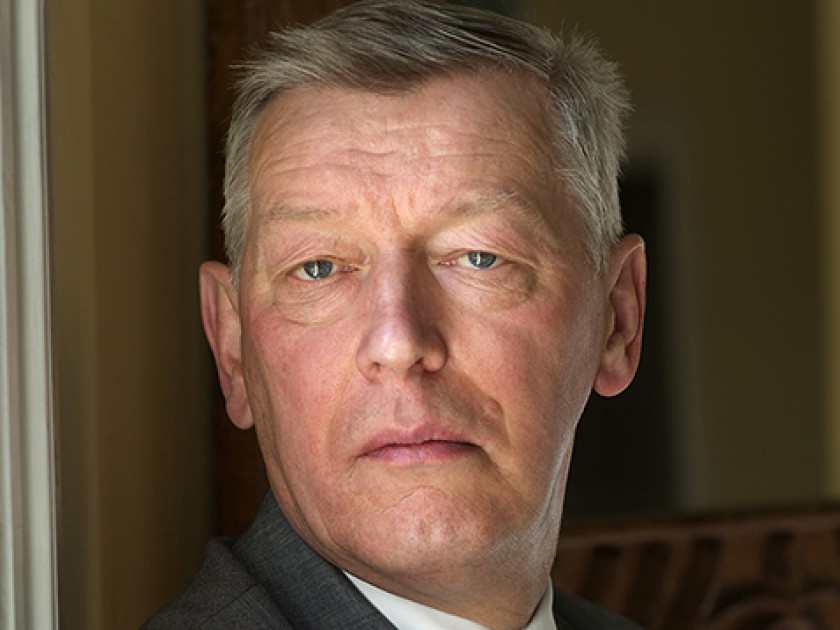
Photo: Colin Bell
Alan Judd is the author of The Kaiser’s Last Kiss, a novel exploring the intricate relationships within the exiled home of Kaiser Wilhelm during World War II. Alan is guest blogging for the Jewish Book Council all week as part of the Visiting Scribe series here on The ProsenPeople.
I grew up in a village outside London during the years following World War II. What we now call the Holocaust was less widely known then, and I was largely unaware of Jews or Jewishness. The only incident I recall from childhood is a conversation over tea at my grandparents’ house. It must have been a Saturday, because we always had tea with them on Saturdays, and there must have been remarks about Jews which I’ve forgotten. What I do recall is my grandfather’s response, suggesting that the conversation might have been casually antisemitic in the Jews-are-mean-with-money vein that was unremarkable in those days. My grandfather’s job involved walking the streets of East London, checking people’s electricity meters and collecting payments. I remember him intervening with, “No, but I’ll tell you one thing about the Jews: you can trust them. If I call and they haven’t got the money and they promise to pay if I call back later, they always keep their word.”
My school was a state secondary. I remember nothing about Jewishness there except for one boy in our class who was often bullied, mocked, and picked on. His name was Joel; it was only years later that I realized the name had Jewish connotations (unlikely as it seems now, I was so unaware that it never even occurred to me at the time that such names as Abrahams, Moses, Cohen, etc. were Jewish). But I don’t think poor Joel’s presumed Jewish origins were the reason he was picked on, unless we assume some unconscious group impulse. He was small, weak and passive and my classmates were unfortunately like the bantams my grandparents kept at the bottom of their garden: they pecked the weaker ones to death.
The next stage in my unconscionably slow awakening occurred in the army, when a friend rehearsed the (to me, novel) thesis that the creation of a Jewish homeland might paradoxically have weakened the achievements and contributions to human progress of the word-wide Jewish Diaspora by focussing identity on territory rather than on matters of the mind and spirit. This made me more aware of Jewish contributions to learning and the arts, though I remained lamentably uninformed.
Then, when I was at Oxford, I shared a house with a friend of Eastern European Jewish origins. His consciousness of his roots and our late-night discussions awakened me. It helped that I was reading philosophy and theology and was thus aware of the formative influence of Judaism on Christianity and our contemporary secular morality. My friend had a volume of George Steiner’s essays, including one on Kafka which he annotated so aggressively that it got me reading Kafka myself. (My friend later confessed he hadn’t read him at all, but he didn’t see that as a bar to strong opinions).
Gradually, I became aware that a significant number of my friends were of Jewish extraction, a process that accelerated when I joined the Foreign Office. Despite its perceived pro-Arab bias, an internal historian there used to say that the Office was sustained throughout the twentieth century by Jews and Catholics. One colleague, a friend and mentor whose trading ancestors had over centuries been driven westwards from southern Russia by successive pogroms, introduced me more widely to the writings of Jewish authors, beginning with Leon Feuchtwanger.
This process continued after I left the Foreign Office, perhaps unsurprisingly given that I mixed partly in journalistic and literary circles. It has never been a deliberate quest on my part; I have never sought out people because they were Jewish but increasingly I found that many of those I was drawn to, whose humor I shared, whose abilities I respected and whose friendship I valued were wholly or partly Jewish. I have always found it easy to identify with them, especially with those prepared to articulate their Jewishness.
I’ve asked myself why this should be, without any clear conclusion. To ascribe it to an unconscious inclination or yearning merely begs the question. So far as I know, there is no Jewish blood in my ancestry, though for a while I rather hoped there was on the assumption that Judd — my mother’s maiden name — derives from the German Jude. (It’s most likely Scottish.)
So there you have it: a free rider so far as Jewishness is concerned, a traveler without a ticket. But I’m enjoying the journey.
Related Content:
- Molly Peacock: “I’m an Irish Molly”
- Lauren Fox: My Daughter’s Letter to Thai Jesus
- Essays on Interfaith Complexities
Alan Judd is the author of eleven novels and two biographies. He previously served as a soldier in the British army and as a diplomat in the Foreign Office. Judd is a Fellow of the Royal Society of Literature and has won numerous awards including the Guardian Fiction Prize and the Heinemann Award. He currently writes for The Spectator and The Daily Telegraph. He lives in Sussex with his family.
